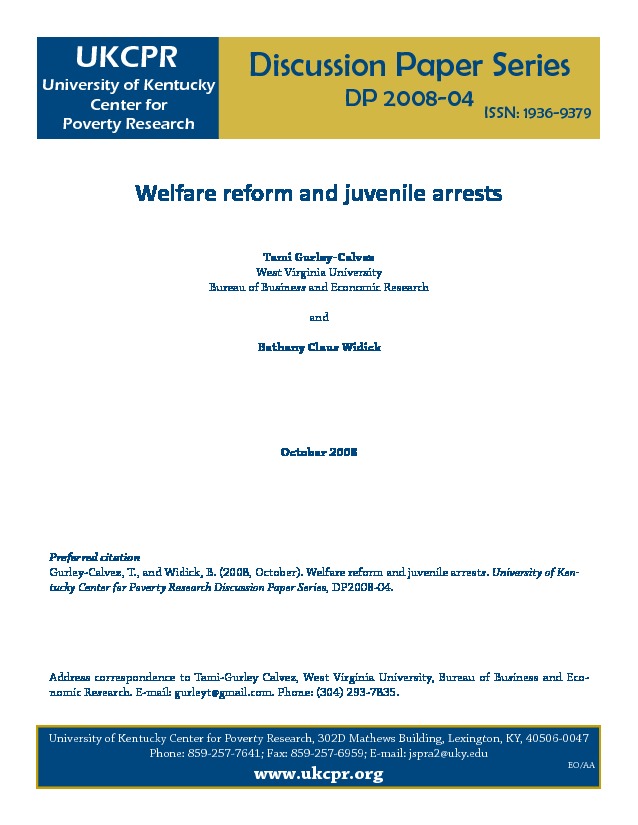Social policy, such as the legalization of abortion and the federal bans on lead in the 1970s, has been shown to significantly impact crime rates. With recent increases in juvenile arrests and violent crime rates, we explore whether further social policy—namely the 1996 Personal Responsibility and Work Opportunity Reconciliation Act (PRWORA) welfare reform—has had an impact on crime. Our results suggest that stricter work requirements experienced by 13 to 15 year-olds increase their violent crime activity 2 to 4 years later. An increase of one standard deviation in the severity of the work requirement policy results in 5.5 more annual violent crime arrests per capita, an 14.5 percent increase. These results indicate that states should consider options for mitigating these effects, such as support services targeted at teenagers, when implementing the stricter federal work requirements outlined in the Deficit Reduction Act (DRA) of 2005. Conversely, we find no effect of welfare work requirements on juvenile property crime arrests, consistent with the literature on crime and delinquency among juveniles of low-socioeconomic status.
Research
Welfare ReformPDF Thumbnail
